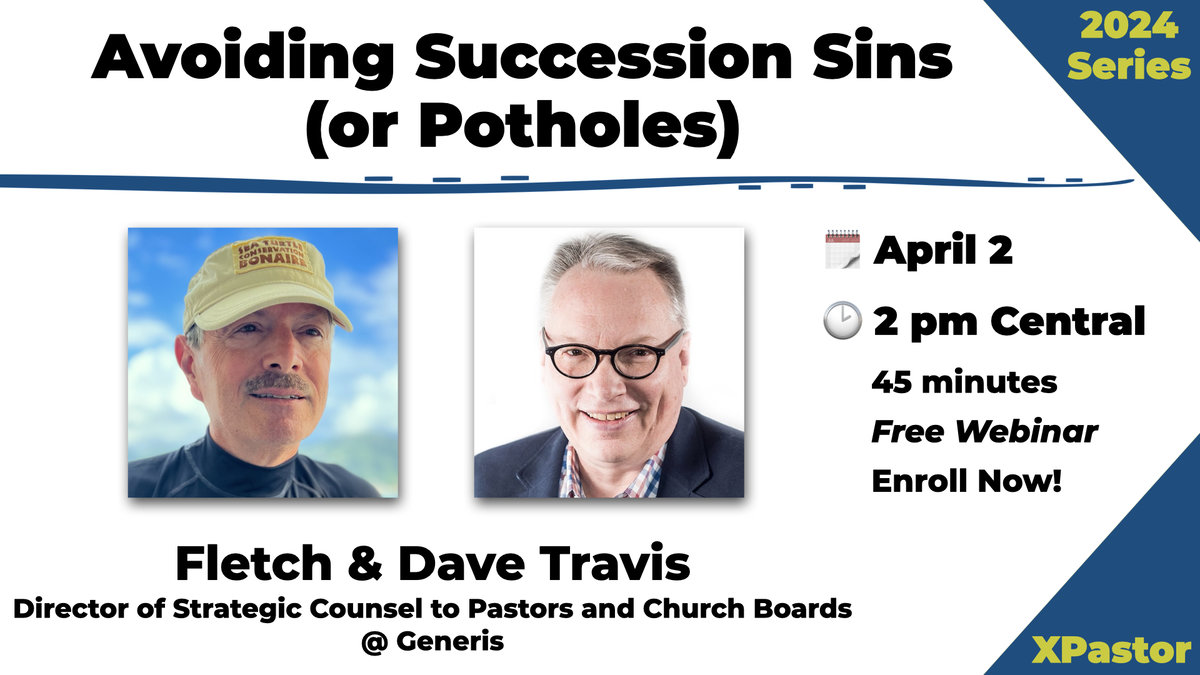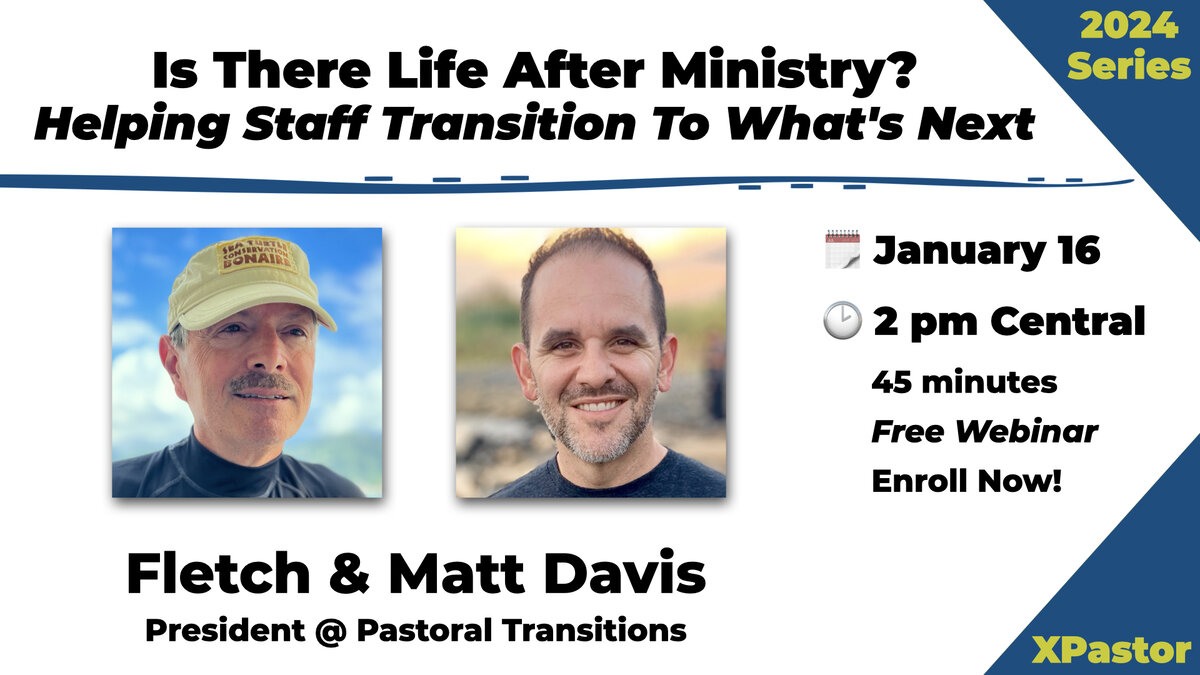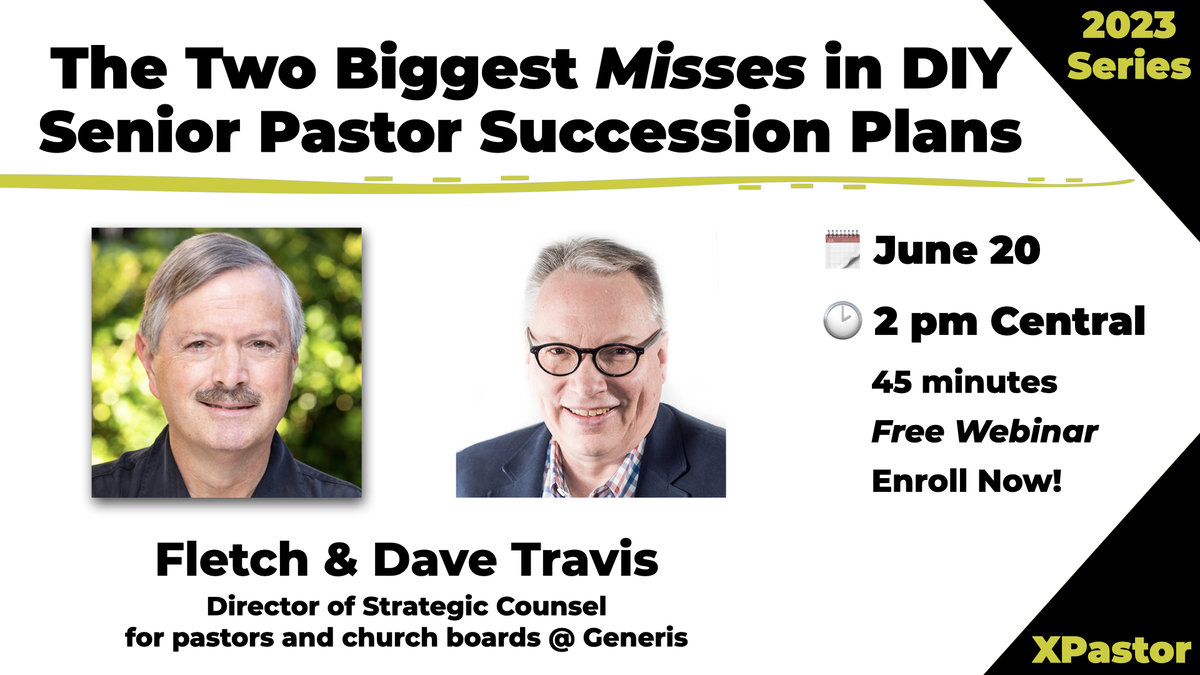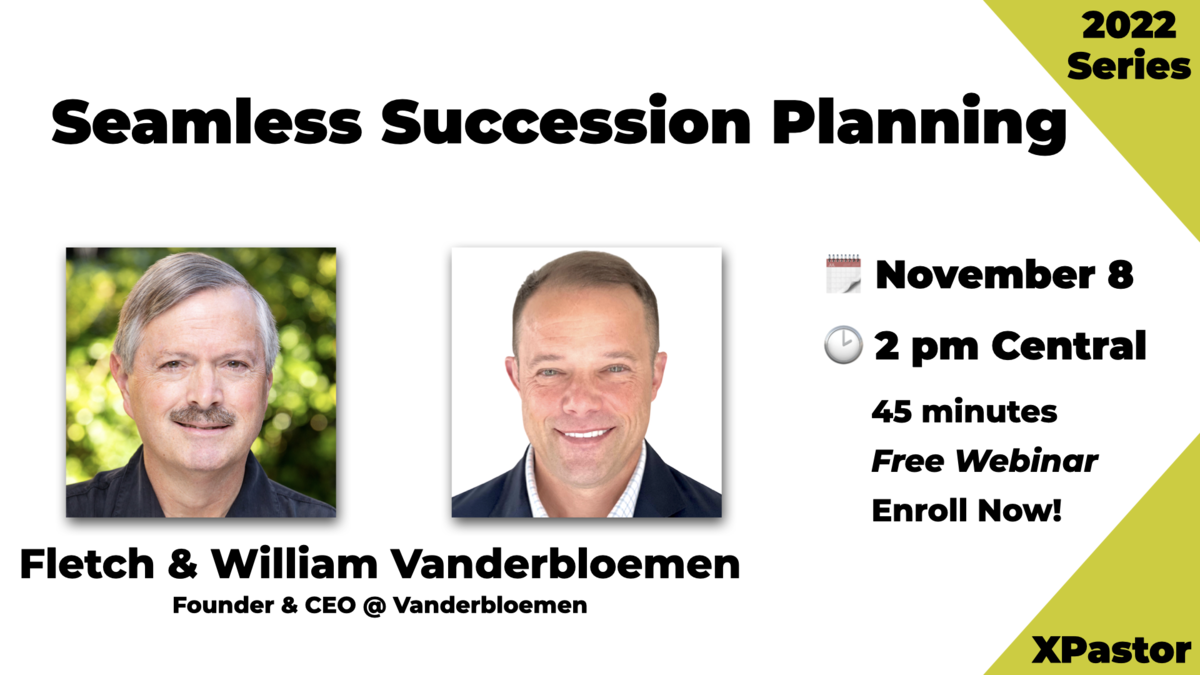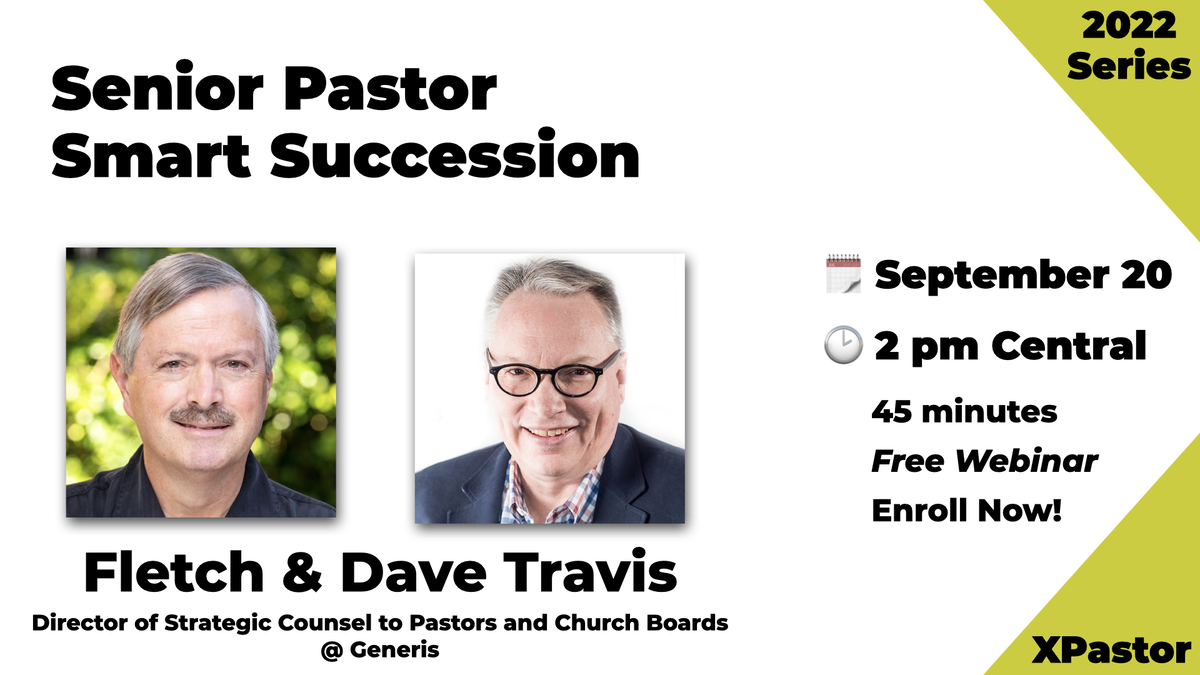Bob had all the marks of a hurting pastor. I sat across the coffee shop table and hurt with him. He had recently finished his first year in Judson Church and celebrated the congregation’s fiftieth anniversary. It had not gone well. He needed to talk, and I provided the listening ear.
Bob’s predecessor, Wayne, had had a long and fruitful ministry at Judson. When he left for a larger congregation, the people were convinced they would be a long time finding a successor to match Wayne’s gifts.
The search committee, however, knew Bob had great abilities. When he came to Judson, the church zoomed forward. Bob’s sensitivity to singles, the divorced, and widows and widowers soon had Judson bursting with new people. The congregation had grown nearly fifty percent in the first year with its new pastor.
Some folks, however, didn’t like this. All these “different” people from the community took away the feeling of the “old Judson.”
In planning the fiftieth anniversary, the leadership pressed Bob into inviting Wayne, the former pastor, to be the guest preacher for the Sunday celebration. Bob was reluctant. He knew the divided elements in the congregation could be further polarized by Wayne’s return so soon. He hoped Wayne would be sensitive to the tensions. Wayne, however, readily accepted without asking for Bob’s opinion.
Arriving in town on Friday, Wayne never contacted Bob. He busied himself with parties the old leadership arranged. No one realized what it was doing to the new pastor.
When the fiftieth anniversary Sunday dawned, Wayne arrived only five minutes before the service and asked Bob for a bulletin. This was their first face-to-face meeting. When Wayne was introduced, the congregation responded with applause. Wayne recalled pleasant things about their years together, making no mention of Bob, the new growth of Judson, or its future. After the service, Wayne announced he would be at the front, and people flocked forward.
The weekend was a great event for Wayne. His spirits were lifted, and his ego was boosted. The old-timers in the congregation remembered how good it used to be and asked, “Why isn’t it that way now?” In the months that followed, the polarization of the congregation continued. Bob put down his coffee, looked me in the eye, and said, “Don, I can’t believe he did that. He couldn’t have understood what I was feeling. He certainly doesn’t understand how he hurt the church and threatened its future.”
While my heart went out to Bob, my mind was also racing over my own impending resignation at Salem Alliance Church, where I had served for twenty-three years. What was Bob’s pain saying to me? As I was about to become a “Wayne,” what would be the right things for me to do? When you’re involved with people and the emotional attachment is strong, how do you best say good-bye?
If you’re in ministry, chances are that within the next few years, you’ll be leaving the church you’re currently serving. On the average, one quarter of all ministers move each year. The departure guidelines I offer are based on the law of love. The bottom line: In this transition, what does it mean to love Christ and one another, particularly the congregation I’m leaving?
Preparations for Departure
Preparing the church. How we respond to the move prepares the church for the departure. No matter how great the new opportunity, it’s tough to leave old friends. There will always be pain, because leaving colleagues means tearing away some deep roots. Then there are those—many or few—who have added to our burdens over the years and may be glad we’re leaving, despite the “sweet stuff” they may be saying.
Servants of God must choose to be happy in the difficulty of a move. It is a time to declare our faith in God. The worker’s attitude, more than anything else, prepares the church for his departure.
Ministering to your family. As in all our service, we don’t want to forget to minister to our spouses and children, who are also going through the pain of saying good-bye. Their sense of loss may be much greater than our loss. We may already have new friends where we’re going. They probably don’t. We may be leaving troubles as well as good memories. They probably have not been a part of this and may know little about it. They could well be thinking, How come my spouse or parent gets called of God and I have to move, too?
Giving your spouse a part in the decision can help bond your marriage. Praying and discussing options with your children makes them feel a part of the team.
When we left San Diego to go to Oregon, our eldest child was in grade school and the two other children were preschool age. We insisted they come when we candidated. Together we weighed the issues and prayed.
By the time of our move to White Rock, our children were all adults, but we still made them a part of the process. In many ways, this move was harder for them than the one before. This time their parents were leaving, and they weren’t. Now we were leaving grandchildren, and the periods of separation might sometimes be long.
To make the move easier for the family, we planned specific times together around the move and after we arrived in our new location. Salem Alliance brought our son and his wife from Alaska for our farewell. That was so important. The weekend after our farewell we spent together on the Oregon coast. Our married daughter and family then accompanied us on the move north. Each step was an important family celebration. We were still a team.
Breaking the News
I wouldn’t want my fellow staff members and church board to learn of my decision at the same time the congregation does. I chose to bring a few key staff and elders into my decision. I asked them to walk with me prayerfully through the remaining part of the process. I wasn’t asking them if I should accept the new call. I was asking for their support as I attempted to do what I believed was honoring to God. I also made myself accountable to them for doing it properly.
When I eventually decided, I first told these men, then the whole staff, and finally the rest of the board. I asked them to help make my closing time a unifying experience.
I specifically asked the staff, “What do you need from me during these last weeks?” Their responses were helpful, and I sought to carry them out. They included: (1) work to bring about acceptance of the decision; (2) help the board understand how to make the transition; (3) prepare us for the new leader; (4) don’t make us feel as though you’re leaving us forever. Many on the staff also felt their futures had been thrown into doubt. They needed care and hope.
A letter of resignation to the congregation needs to be a healing instrument and a statement of faith. It should convey a sense of God’s sovereignty and be filled with hope. Being positive about joys and victories together can help the congregation be joyful over the past. Stating our sorrow at leaving but our commitment to obedience affirms that we’re making what we believe to be a right choice.
The letter needs to be written out of a sense that the sovereign God is allowing these circumstances to be brought into our lives. Therefore, we submit to what is happening as part of His will. The people will also be helped if we can say we’re responding to a larger opportunity. I found that writing a series of drafts and “sleeping on it” aided in my saying it right.
By faith we can believe—and help the congregation believe—that the best days of the church are ahead. Thus, I felt it was important to state in my letter that “new leadership would better serve this church” and “there is a danger in my overstaying here.” I also promised the church that I would pray with them for my successor and promised to support him or her as God’s person for the church. My affirmation seemed to help solidify the church.
As I composed my letter, it seemed to me that the real test of the effectiveness of my ministry would come in the interim between my leaving and arrival of the new Senior Pastor. So I asked the people to be faithful. I acknowledged that some would be surprised, if not even disappointed, by my resignation. But I asked them to close ranks and believe God with me for my future, as well as the future of the church.
I’ve found people respond positively if I’m positive. If I want my departure to be healing for the church, it will become that. If, however, I want my departure to broadcast my disappointments, I can easily sour others.
When we resign, we need to follow through. It’s tempting to use a letter of resignation as a negotiating tool. Once we’ve notified the church, however, we shouldn’t reconsider the decision.
The sooner one leaves following the resignation, the sooner the healing begins and the church can start to look for a successor. In my experience, two to four weeks is plenty of time to tie up loose ends.
Because our people were surprised, I knew grief and even anger might appear. Some of them avoided us because they didn’t know what to say. It reminded me of the way people treat an individual mourning the death of a loved one.
To try to ease the situation, I explained that some of us would experience the stages of grief in our pending departure. I assured them it was all right if they didn’t know what to say. This provided people with space and gave them freedom to come to us as they were able. During our last Sundays, I didn’t go to the foyer after the service, as was my custom. Instead, my wife and I stood at the front of the sanctuary, where the people could come as they were ready.
As in working through grief at the time of death, we found it wise to listen and let them talk. When our turn came, we tried to recall happy or hard times in which we had stood together. “Look back with joy; look ahead with excitement” was our message.
Preparing the Church for Your Successor
When Donald Seibert was chairman of the board and CEO of the J.C. Penney Company, he told me, “The day I took this office, I began to prepare the way for my successor.” He understood the company was not his. As a good leader, part of his job was to prepare the corporation for the person who would follow him.
I also have to remember that the church is not mine. It belongs to Christ. We pastors are placed where we are for a season. Another will follow us. Even Moses, who led Israel for forty years, understood this and prepared the way for Joshua.
I tried to do this subtly over my years at Salem Alliance. While seeking to avoid the appearance of threatening to leave, I would occasionally refer to the long range future of the church with such phrases as, “When God will eventually lead me elsewhere.” To the elders I would sometimes say, “Remember I’m not dug in here. I won’t always be here.” After I announced my resignation, it was time to accelerate the preparation. I communicated to the congregation and leadership that I would accept and welcome the new pastor. As I repeatedly affirmed, “God is going to give this church a new leader,” my acceptance became contagious.
I gave the people practical ways to show love and caring for a successor. I described the good ways they had treated my family and I over the years, while pointing out how they could treat the person who followed me even better. I also encouraged the leaders not to make a hurried decision on the new pastor. They seemed to understand that a time of adjustment would be necessary. This is important in both positive and negative departures.
There was also a responsibility to help the people understand that our relationship in the future would be different. Our church would have a new pastor. He would be different from me. But he would be God’s gift to the church, and if they really loved me, they would honor him. I tried to convey that while my family and the church would remain friends, I would need a lengthy separation from Salem, giving us a time to grow separately.
Even under the best circumstances, a lengthy separation is advisable. My own district superintendent recommends two years. J. Ralph Hardee of Southern Seminary cautions, “Under no circumstances should you return too frequently.”
When the reasons for your leaving are negative, loving preparation for your successor is all the more important. Likewise, the time of separation needs to be much longer. It’s not best to allow the time of separation to be interrupted by phone calls or correspondence, either. Don’t keep cutting the dog’s tail an inch at a time. To continue contacts for information or channels of advice can be destructive.
Whether or not the split was on friendly terms, any return to the parish needs to be instigated by the new shepherd, without pressure from either the prior pastor or his supporters. The principle holds true for Senior Pastors and those in staff positions. Warren Wiersbe says, “Get out of the way of your successor and try to be an encouragement … treat him the way you want your predecessor to treat you when you arrive at your new field.”
Invitations for Weddings and Funerals
It is only natural that some of those that you have known for years will want you to return to officiate at weddings or funerals. Great wisdom and discretion are needed here.
Two months after leaving Salem, we returned to celebrate Christmas with our grandchildren. I determined to stay away from the church and the people, but alerted the interim pastor to our presence anyway—a courtesy I intend to carry out for at least the first several years after my departure. Unfortunately, a car accident took the lives of two single adults, and the funerals occurred while we were in town. What was the loving thing to do?
We chose to go early in the morning to view the body before the public or family were around. This allowed us to express our own grief and register our having been there.
We chose not to go to the funeral. We could have become a distraction. Besides, our presence in the sanctuary would have opened the wounds of our leaving rather than promote healing.
Dealing with such invitations needs to begin before you leave. I told the people it was best that I not return for special occasions so that bonding could take place between them and the new pastor. If it seems that such an invitation must be accepted, I suggest contacting the new pastor to ask for his or her permission for you to participate in the event.
At all costs, I think it’s important to avoid meeting with people who were my supporters unless my successor is present and participating in the event. And if I treat him as my pastor when I’m in the community, my supporters will follow my model.
If I couldn’t conscientiously affirm publicly the church and its new leadership, I would have no business returning to that church, no matter how long it had been since I left. The law of love and professional ethics demands that I recognize the leadership, even if I don’t agree with them, and not force them into situations in which they’ll be uncomfortable.
Staying in the Community
It almost never works for a staff member to resign from a church and then remain in the congregation while he or she moves into secular employment. When we leave the ministry, we’re saying our relationship with the church was less than ideal. Then our less-than-ideal feelings affect our attitudes toward the leadership.
There are times however, when failing health or retirement may necessitate remaining in town. Again, some extended period of separation should take place before one returns to the fellowship. The rule of love is not what’s convenient for the former staff member but what is best for the church and the leadership.
Twice I’ve followed predecessors (though not immediate predecessors) who had been called back as pulpit supply before my coming. In both cases, age, health, and family ties called for them to stay in the community. Each separated himself from the church for some time and then returned to a strongly supportive role in the congregation. Their love and support for me was picked up by others.
When Your Successor Isn’t Doing a Good Job
We’re never going to be completely satisfied with the job a successor does. Differences in style, changes made in music, the format of the service, the bulletin, the Sunday school, the youth program, or office procedures naturally make us feel our ideas have been rejected. We need to be careful not to allow our egos to get in the way.
Of course, sometimes successors “stub their toes.” It may be evident to all that they’re not doing as well as everyone had hoped. This is a time for us to live out our commitment to God’s sovereignty and to recognize that the former church is no longer our responsibility. Neither is it our job to judge that person. It’s time for us to believe God.
A.W. Tozer, who pastored for many years in Chicago but spent his last years in Toronto, once remarked that “leaving a church is like dying and going to heaven and looking back to see what kind of fool your wife married.” The real question, however, is not whether my wife’s new husband is better than I. Rather, the question is, how have I prepared my wife for life without me? And now that I’m gone, can I trust God to provide for her?
Should intervention be needed in the church I’ve left, I’m not the person to do it. A denominational official or a respected Christian leader from elsewhere needs to be called in. The more difficult the situation, the greater the glory that goes to Christ when we respond in love and do what is ethical.
Back to Obedience
In the agony of our leaving Salem Alliance, my family and I were probably helped most by the sense that we were motivated by obedience.
One day after we had been gone for several months, our daughter was driving across town with our 4-year-old grandson. When they were on the bridge they used to take to our home, little Brian said,
“This is the way we used to go to Grandma and Grandpa’s house.”
“Yes,” responded his mother, “but now they have gone to Canada to a new church.”
“We miss them.” Brian replied.
“That’s right,” said his mother, “we all miss them.”
After a pause, Brian said, “Yes, but it’s good that they obeyed God.”
Somehow by God’s grace, this 4-year-old child had caught the message of the move. God is glorified in His church when we say our good-byes with a sacrificing love. Some people won’t understand the ethics of it all, but they can be drawn to God and to one another when we choose to do it right.



